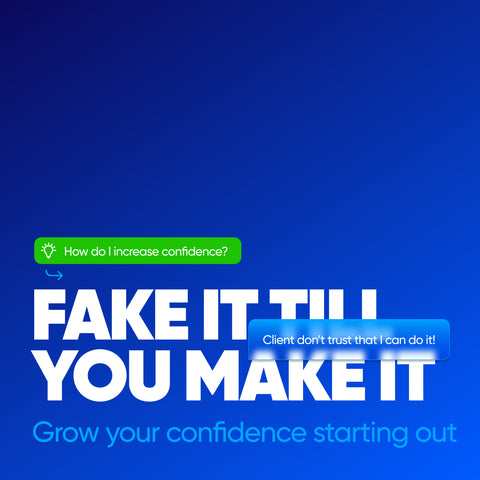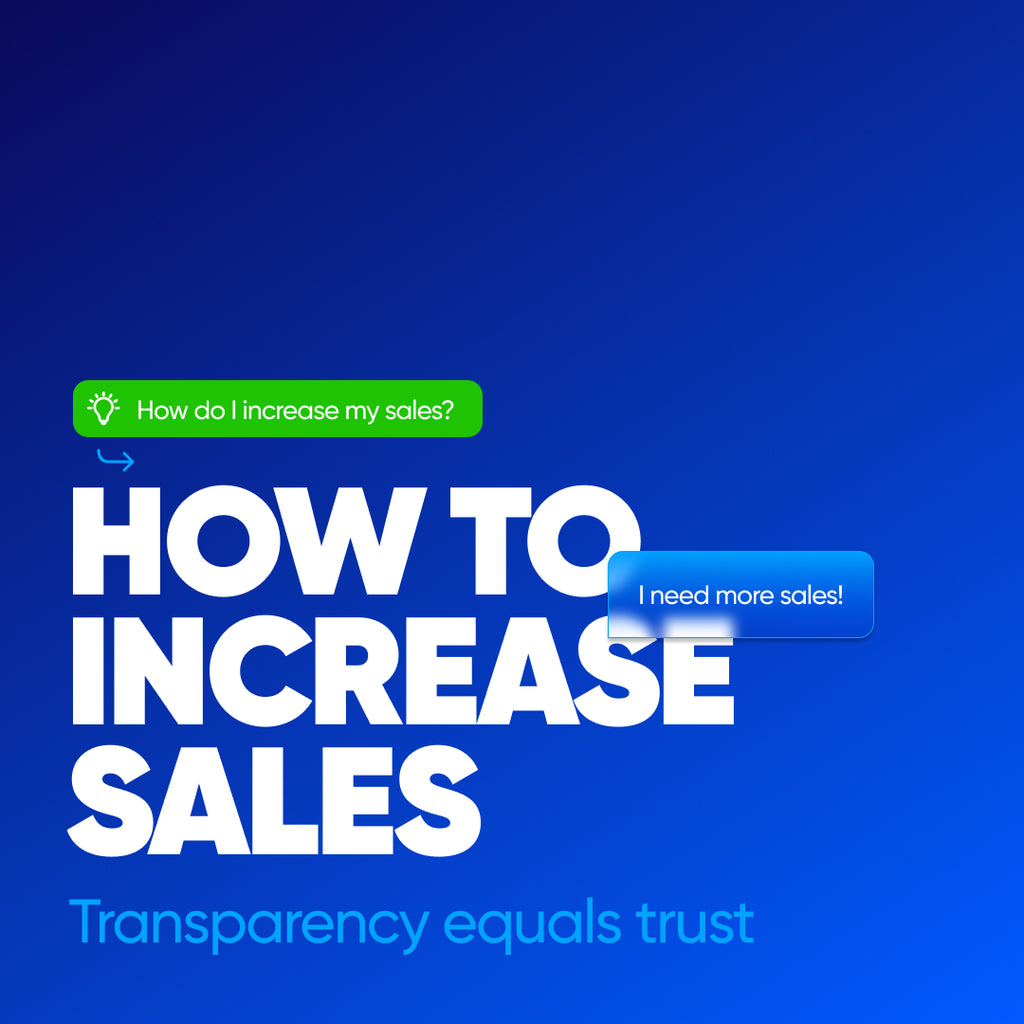Let's look at what this means particularly in the context of job-hunting. Is it a valid way to further your career, or is it just a very dangerous myth that might sidetrack your long-term goals?
How did "Fake It Till You Make It" originate?
The general idea of "fake it till you make it" has been around for years, based on the concept that if you're acting confidently and capably even when you don't feel like it, you yourself will become that person you've been pretending to be. This sometimes means being confident at a job interview or acting as if you know the skill which in reality you don’t.
Long story short, there is a fine line, though: faking confidence vs. faking skills. Duping others about having those very skills that one does not have may boomerang, resulting in a loss of reputation and subsequent trust from employers. On the other hand, projecting confidence while you're actively working to acquire those skills can be a real career-development weapon.
Fake Confidence, Not Skills
Knowing what to fake vs what not to is the trick with the ‘fake it till you make it’ mantra. There are certainly times when one can and probably should fake confidence, such as during an interview or at any networking event. It’s really about trying to present yourself as someone who is up for challenges, even when you’re quaking in your boots on the inside.
However, this is not the case when it comes to faking skills. If you lie about having some expertise, you set yourself up for sure failure. Each employer wants to hire honest and integral people; faking their abilities can lead to a mismatch of your real abilities in comparison with the expectation one will have from your role. At worst, it irrevocably will harm your career growth, thus limiting future opportunities for career development.
Rather than pretending about skills, do confess continuous learning and professional development. This could be done by taking professional development courses, an online course, or seeking professional development opportunities now in the current organization. You should work on gaining significant skills for your success through career training.
Learn Until You Make It
If you cannot adopt the “fake it till you make it” mantra, then what is the alternative? Adopt a "learn until you make it" mindset since the answer lies in continuous learning and growth. This approach emphasizes the idea that rather than faking something which you are not, work on the development of skills and knowledge that helps you achieve your career goals.
Consider a career development plan that sets out clear, professional goals, and chalk out the way that you will need to do to attain them. This can be either through furthering your education, taking professional development classes, or having mentors guide you through your career path. Acquiring new skills will build your confidence and ensure that you never feel like an imposter.
For example, if you intend to be a leader, know precisely what abilities you need to acquire. Whether leadership courses, project management skills, or even courses on communication, make use of the opportunity for development. Most companies will provide professional development that is important to the staff since business organizations know that putting resources into the growth of workers leads to high returns through productivity and better performance in corporate activities.
The Role of Confidence in Career Growth
Now, the critical element in the quest for success through career is confidence, although there needs to be a difference between genuine and pretentious confidence. The real confidence emanates from knowing what your strengths are and admitting where you should grow. It is about self-awareness and the guts to take on risks when you aren’t quite sure of the outcome.
Confidence makes all the difference in how you carry yourself in front of prospective employers. Walking into an interview oozing with confidence can give the impression that you’re the person for the job. Do remember, however, that confidence shouldn’t be at the cost of honesty. Be honest about what you know and what you don’t. Let your interviewers know about your commitment to growing as a professional and why you consider professional development important.
The Risks of Faking It
Although "fake it till you make it" may be a helpful mantra, it certainly doesn't come without its risks. Perhaps the biggest danger is that it raises the impostor syndrome to a new level—a psychological pattern whereby people doubt their own accomplishments and constantly fear that they are going to be exposed as a "fraud." Well, when you are acting on a permanent basis like somebody you are not, particularly if you are successful, then it's rather easy to feel like an imposter.
Imposter syndrome can be very devastating in professional life. It may increase stress, anxiety, and even burnout. Further, it may make you retreat from new opportunities or stretch assignments that could take your career to new heights. Instead, focus on developing real confidence by celebrating what you have accomplished and how far you have come.
Another trap of fake confidence is that it can create unrealistic expectations either of oneself or of others. Maintaining this falsehood is then a heavy burden, especially in rough times when things are not going well. It creates a cycle of incessant strive for getting for unattainable standards, surely leading to burnout and lowered welfare.
How to Balance Confidence and Authenticity
One has to reach out to find a mid-path between confidence and authenticity. Some of the following tricks will let you balance the tightrope:
Honesty About Your Strengths and Weaknesses
It is perfectly all right to admit that you are still learning. In fact, all employers like such candidates who can self-develop and grow. This attitude depicts the growth mindset of being ready to learn and develop.
Look for professional development opportunities
This can be on-job training, mentorship, or professional courses to gain more career development and boost confidence with new expertise gained. Career development encompasses these specific, actionable steps, differentiating them from broader career growth aspirations.
Network
Networking is a very handy tool in career development. A developed relationship with persons experienced in your chosen industry provides an avenue for gaining insight, advice, and assistance in decision-making while one is pursuing a chosen line of work. Also, a robust professional network might open business opportunities to you and help you stay up to date with the latest industry trends.
Embrace a Beginner's Mind
No matter the experience, there is always room to learn. Growth is continuous; this is something you will be willing to learn from others. This mentality is not only going to keep you flexible but also grounded as you go along with your career.
Focus on Long-Term Success
Indeed, the short route may seem irresistible, but it must be remembered that long-term success would only come out of a constant urge and effort made to achieve that. Work for a solid career founded on skills and knowledge rather than faking it.
Provision of Career Growth Opportunities by Employers
Examination of various companies shows that employers offer essential career development support to their workers. Organizations that invest in human resource development are more likely to exhibit higher rates of employee retention as well as enhanced business performance. Professional developmental opportunities available at work places enable employees to acquire skills relevant to their career advancement.
For example, if there were access to professional development courses, online courses, or even mentorship programs, these would arm the employee with the resources that can help them potentially succeed. Furthermore, when a culture of learning is embedded within the organization, employees derive personal satisfaction and welfare from it.
Employers should also foster open dialogue and support their employees in the process of acquiring new skills. Companies can help their teams grow and flourish if they create a space where it is safe for employees to admit when they need help and actually do admit it, thereby enhancing employee performance.
The Power of Authenticity in Professional Life
At the end of the day, authenticity forms the crux of any successful and satisfying professional life. It's important to project a lot of confidence but equally important to be genuine. In being authentic, you build that credibility and trust with others, really forging valuable relationships on which you can rely.
Authenticity would also represent getting real about the values and goals, the goals and aspirations. Do not try to be a square trying to get through a round hole. Be real and use that to your advantage. Authentically follow your strengths and interests in life's journey, and the rest will fall into place according to plan.
So, is it just a myth that job hunting chases the classic rule of "faking it till you make it"? The answer, of course, is far more nuanced. While faking confidence can be important and is useful when used rationally, an equal emphasis should really be placed on not ensuring that offense is not taken by the likely truth. Ensuring that one always tries, at every level, to gain real confidence by the acquisition of skills needed at that stage is the way closer to your career goals.
So the next time you get into a tough spot, don't just fake it—learn it and practice it.

Fake It Till You Make It: Myth or Reality in Job Hunting?




